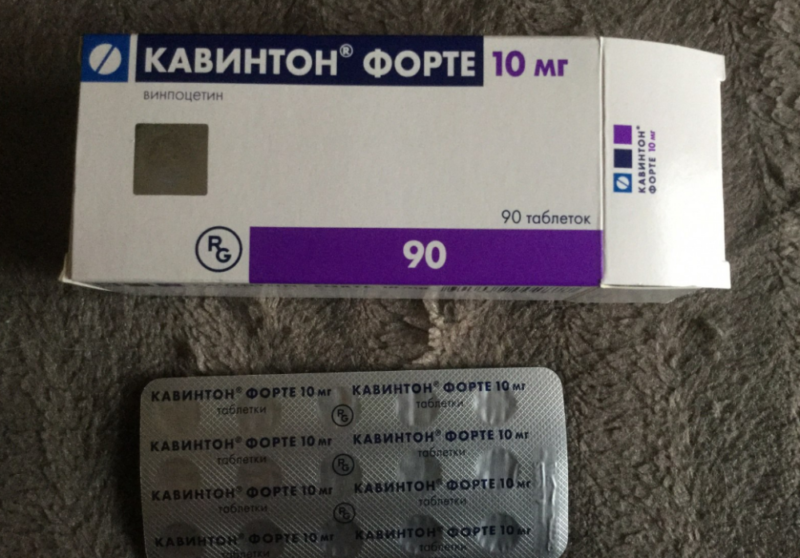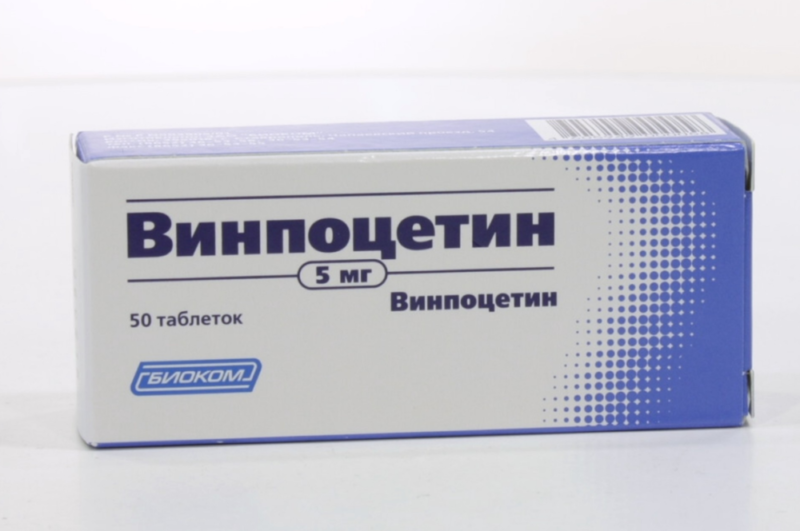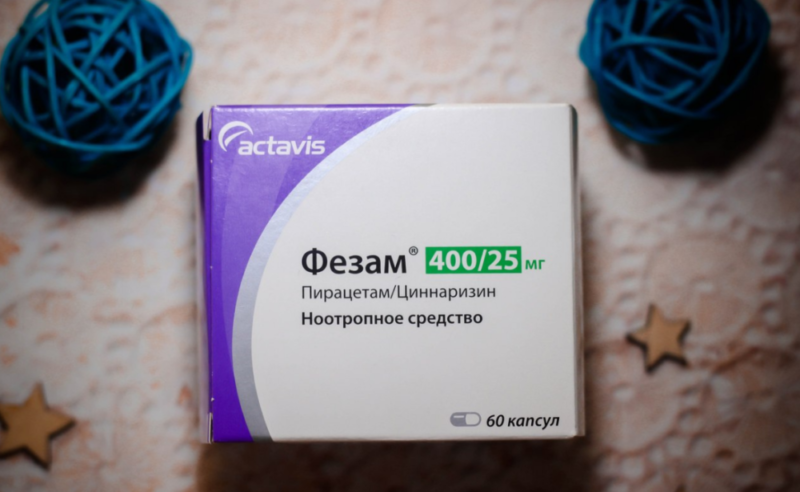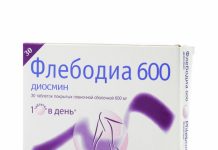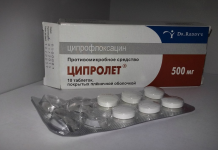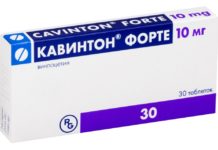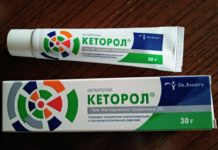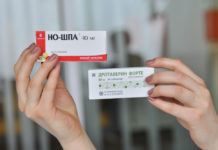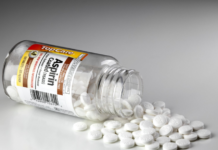When failures in the process of cerebral circulation occur, they resort to special pharmaceutical preparations. One of them is Cavinton Forte. It is successfully used to eliminate neurological diseases. In addition, the drug is in demand in otolaryngology, ophthalmology.
Material Content:
The composition of the drug
The active substance in the composition is vinpocetine (10 mg in 1 tablet). There are also additional components.
For example:
- starch;
- lactose monohydrate;
- silicon dioxide.
The tablets are white, with a mark and engraving "10 mg".
Pharmacological action and indications for use
Improving the metabolism in the brain, vinpocetine helps tissues to be saturated with oxygen and glucose. Neurons become resistant to hypoxia, the metabolism of serotonin, norepinephrine is activated. Blood circulation is normalized: increased blood viscosity, platelet aggregation gradually decrease.
Cavinton Forte is prescribed for patients who are diagnosed with:
- vascular eye disease;
- post-stroke conditions;
- hearing impairment;
- tinnitus;
- impaired blood circulation in the brain;
- atherosclerotic changes in the vessels of the brain;
- Meniere's disease;
- hypertensive encephalopathy.
Instructions for use and dosage of Cavinton Forte
The doctor determines the duration of therapy individually - the timing will depend on the diagnosis.
The instructions describe the recommended doses:
- start with a minimum amount of 15 mg / day .;
- over time, the daily dose is increased to 30 mg (sometimes it remains the same - 15 mg);
- the maximum amount per day is 30 mg.
The drug is drunk after meals - 5-10 mg per 1 time (three times a day).
During pregnancy and lactation
Cavinton Forte can adversely affect the fetus, so pregnant patients are not prescribed medication. High doses can trigger placental bleeding, spontaneous abortion.
During lactation, tablets are not recommended. If there is a need for taking the drug, breastfeeding is temporarily stopped.
Compatibility with alcohol and other drugs
Reception Cavinton Forte is incompatible with the use of alcoholic beverages.
Violation of this prohibition will entail the accelerated penetration of alcohol into brain cells, and a health hazard will arise. The therapeutic effect will be reduced to zero.
It is recommended to carefully combine Cavinton with anticoagulants, with antiarrhythmic drugs (only under the supervision of a specialist).
Contraindications, side effects, overdose
The drug to improve cerebral circulation has a number of contraindications, including:
- intolerance of composite components;
- coronary heart disease;
- severe arrhythmia;
- hemorrhagic stroke.
For the treatment of children, this pharmaceutical agent is not used.
Side effects are rare, but their occurrence cannot be completely ruled out.
They appear as:
- sleep disturbances;
- nausea;
- allergic rash;
- heartburn;
- increased sweating;
- weakness;
- dizziness;
- heart rhythm disturbances;
- horse racing
There is no detailed data on overdose cases. But if such a situation arose, conduct therapy aimed at eliminating the symptoms.
Analogs
Many Cavinton Forte analogues contain vinpocetine.
For example:
- Corsavin;
- Vinpocetine;
- Vinpoton;
- Telektol;
- Neurovin;
- Vero-Vinpocetine.
These drugs have the same pharmacological effect as Cavinton Forte - they contribute to the normalization of cerebral blood flow.
Tablets are prescribed if diagnosed:
- cerebrovascular insufficiency (chronic and acute forms);
- retinal vascular disease;
- vegetative-vascular dystonia;
- post-traumatic encephalopathy.
Contraindications are:
- intolerance of composite components;
- severe manifestations of arrhythmia;
- coronary heart disease.
Adverse reactions manifest themselves in the form of:
- arterial hypertension;
- tachycardia.
Recommended dosage: 5-10 mg three times a day.
Cavinton analogs with other active components in the composition:
- Nootropil;
- Fezam;
- Pantogam.
The active component of Nootropil is piracetam.
The medication helps restore brain function with such disorders:
- post-traumatic injuries;
- vascular tissue pathologies;
- cerebrovascular insufficiency (chronic form);
- coma;
- ischemic circulatory disorders.
Contraindications are:
- hemorrhagic stroke;
- severe forms of renal pathologies;
- intolerance to constituent components.
Used with caution in diseases of the circulatory system, pregnancy, after surgery, during lactation.
Possible side effects:
- sleep disturbance;
- loss of appetite;
- nausea;
- excited mental state;
- tremor of limbs;
- diarrhea;
- difficulty concentrating.
Side effects are often associated with an excess of the daily dose.
The doctor prescribes the dosage individually - it will depend on the diagnosis.
The main components of Phezam are piracetam and cinnarizine. The medication has nootropic and antihypoxic effects, causes the expansion of blood vessels in the brain.
The action of Phezam is aimed at alleviating the condition with such disorders:
- intoxication;
- deterioration of cerebral circulation caused by various diseases, injuries;
- malfunctions of the central nervous system, which are manifested as a decrease in memory, concentration of attention;
- Meniere's syndrome;
- asthenic syndrome.
Contraindications are:
- psychomotor agitation;
- severe forms of kidney or liver failure;
- hemorrhagic stroke;
- Huntington's syndrome;
- intolerance of composite components;
- glucose-galactose malabsorption, lactase deficiency.
Nursing, pregnant patients are not prescribed.
Dosage prescribed in the instructions: for 1 time, 1-2 capsules (three times a day). The maximum period for therapy is 3 months.
The active component of the nootropic drug Pantogam is calcium hopantenate.
The drug is suitable for adults and children.
It is indicated for admission if it is diagnosed:
- atherosclerotic changes in the vessels of the brain that provoked the occurrence of cerebrovascular insufficiency;
- extrapyramidal disorders;
- decreased mental performance caused by organic brain damage or psycho-emotional overload.
Pantogam is contraindicated in patients with individual intolerance to the components, with severe kidney pathologies. Pregnant and lactating women do not prescribe medicine.
Side effects are rare - usually these are allergic reactions. And also were noted: dizziness, weakness, insomnia.
Dosage and duration of therapy depend on the diagnosis. The maximum daily dose is 3 g. The course of treatment lasts from 1 month to six months.
Cavinton Forte 10 mg tablets, normalizing cerebral circulation, have a large number of analogues. If necessary, you can choose no less effective, and sometimes cheaper substitute.


